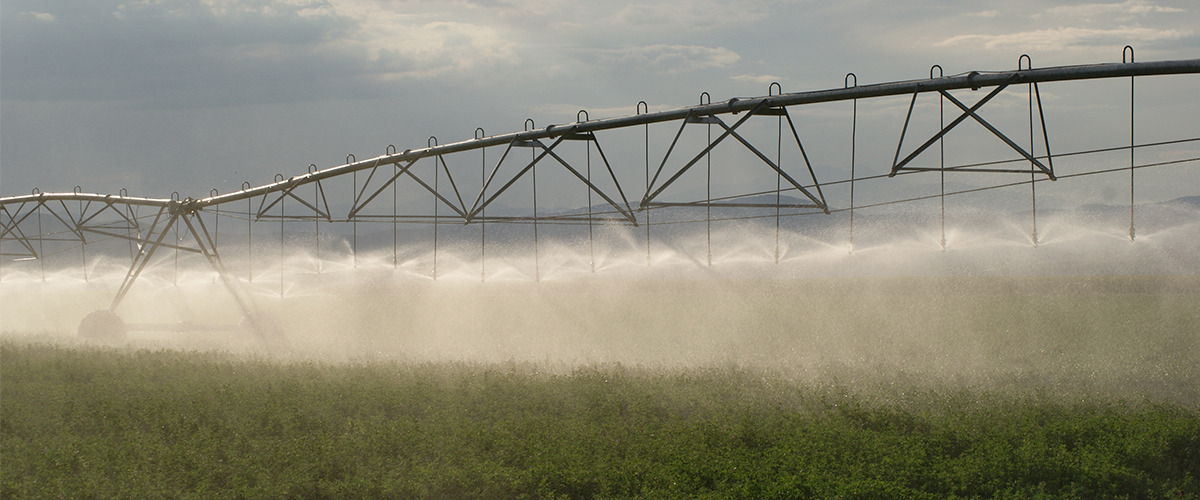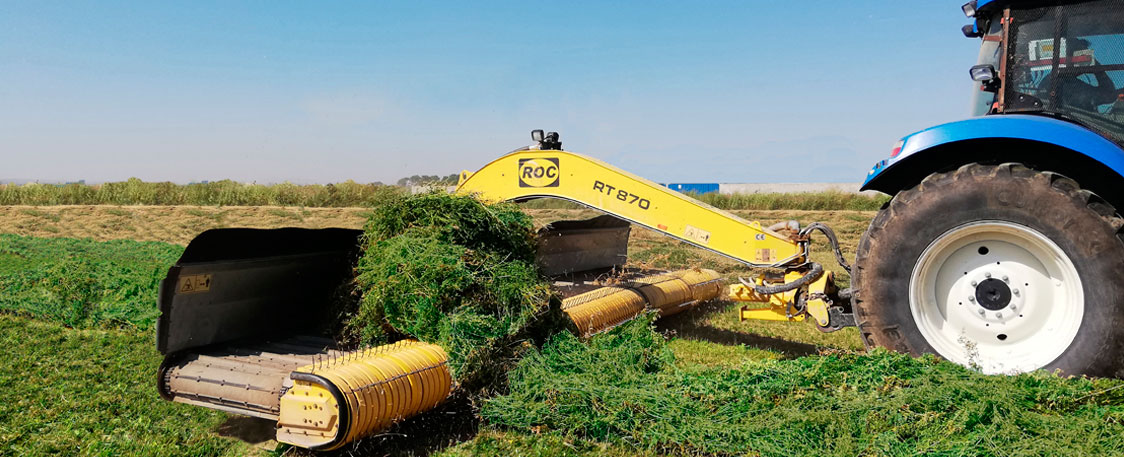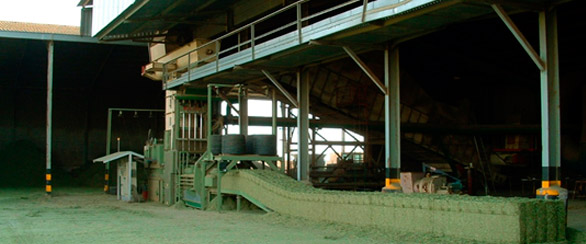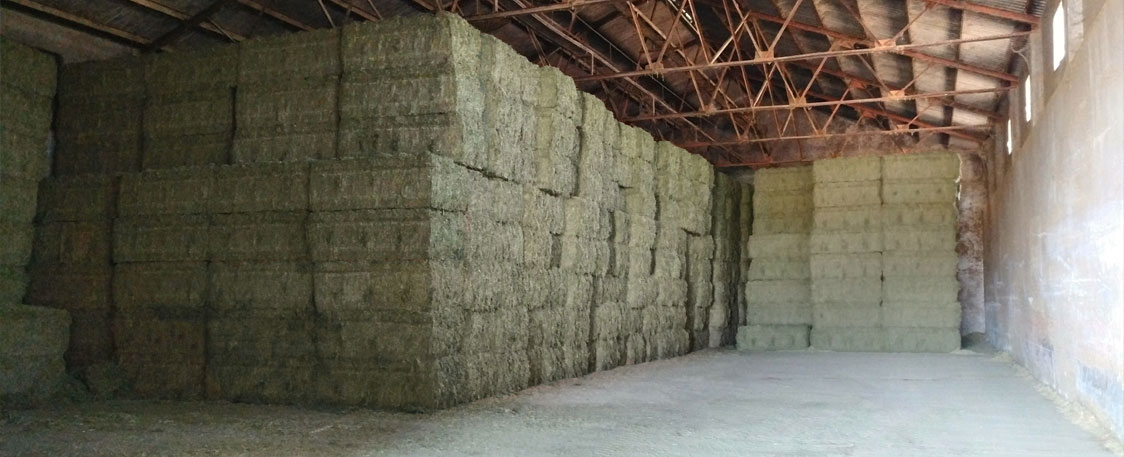1. SOWING
The sowing process is evaluated by our field technicians, who carefully select the best moment to seed the alfalfa, in order to obtain a high-quality protein and fiber. We make sure not to use phytosanitary products that could damage the quality of the product.


2. HARVESTING
The alfalfa is cut and raked to group the alfalfa in the field in rows, where it is left to sun-dry for 48 hours. Later it is collected with a humidity of about 30-35% and it is bitten with our self-propelled machines.
Upon arrival at the factory, the alfalfa is separated according to its quality.
3. PROCESSING
Dehydration is done by direct drying through a trommel, where alfalfa remains between 5 and 10 minutes, at a temperature of minimum 250 degrees. This process decreases humidity levels to 12%. This reduces the possibility of the presence of mycotoxins and microorganisms (Escherichia Coli and Salmonella).
The alfalfa is cooled to lower its temperature and later it is compacted in a hydraulic press, creating bales of weight around 700-800 kg.
In the case of pellets, it is first milled to form a flour dough, granulated and cooled, resulting in pellets with a diameter between 6 and 9 mm..


4. STORAGING
The final products are analyzed and stored in different warehouses, depending on the type of quality, until their transport occurs to our national and international customers.
Quality control
- DYCASA takes care of the quality of our products from the beginning. Our farmers and agronomists make sure to elaborate the product and treat it to obtain the best quality.
- Commitment to health and the environment: we do not use harmful phytosanitary products.
- Temperature controls with our thermograph, to ensure that the drying process is optimal.
- HACCP system (Hazard Analysis and Critical Control Points), to identify possible hazards and measures to control them during the entire production process.
- Our products are analyzed in the laboratory to control the quality of the product through physical-chemical analysis and GMO controls (Genetically Modified Organisms).
- We have hygienic and healthy facilities thanks to the pests control and chemical treatments to which they are subjected.
